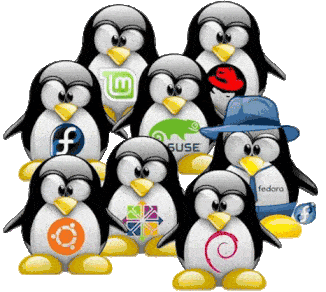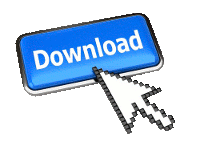Keith Norris (Admin)
| | Posted on Sunday, January 12, 2003 - 10:37 pm: | |
A v4.10 maintenance release for the Now SMS/MMS Gateway has been posted to this web site.
Existing users of the Now SMS/MMS Gateway v4.0x can update to v4.10 by downloading and installing the installation file found at the "Download Trial" link of this web site. This installation file can be used to update existing purchased installations, existing trial installations, as well as for new trial installations.
Now SMS/MMS Gateway v4.10 Release Notes
The primary new features in this version include:
- Support for creating and managing distribution lists via the web menu interface, allowing the built-in web menu interface to be used for SMS or MMS message broadcasts without requiring extra client development.
- The dynamic content adaptation and conversion engine has been updated to support the Nokia 7650. Despite being one of the most popular MMS compatible phones, the Nokia 7650 doesn't publish a user-agent profile that details its characteristics, complicating the task of content adaptation. A default profile is now included that allows the content adaptation engine to adapt content for delivery to the 7650.
- Speaking of the dynamic MMS content adaptation engine, we're also starting to see how this engine can be used to fix real world bugs. For example the Sony Ericsson T68i has a bug that prevents it from auto playing many audio attachments sent by a Nokia 7650. The content adaptation engine works around this bug to improve compatibility for messages sent between the two devices.
- Improved support for Nokia Smart Messaging SMS messages, with new HTML forms that simplify the process of sending ring tones and operator logos. Additionally, when sending any binary SMS message through the SMS gateway, we'll now automatically split larger messages that contain more than 140 bytes of binary data, instead of requiring this to be done by the submitting application.
We've also included a number of fixes and improvements, particularly in the areas of connections to UCP/EMI based SMSCs, 2-way SMS, and Unicode related international character set issues.
A complete list of fixes and enhancments follows below:
- Fix: MMSC did not properly encode message from address for e-mail messages from addresses longer than 30 characters.
- UCP Connection to Server: Report an error if local port is set, but port is not available.
- SMPP and UCP Connections to Server: In configuration dialog, if service is active, prompt to stop the service to test connection. (This is necessary because many SMSC connections will only allow one login at a time. If the service is running and is already logged in, the configuration dialog cannot login to test the connection.)
- UCP Connection to Server: Allow alphanumeric sender address values.
- Fixes for character set conversion issues executing "2-way" commands. HTTP commands will receive data from the gateway in UTF-8 format. If the HTTP command returns a "text/plain" response directly, it should return data using UTF-8 encoding. Problems were encountered passing UTF-8 data on the command line for executable commands. Executable commands receive data from the gateway in the local Windows code page, and if returning a response directly, should return the response using the local Windows code page. To override the default Windows code page, edit SMSGW.INI, and under the [SMSGW] section header, add the statement DefaultCodePage=xxxx. (For example, 950 for big5, 936 for gbk, or 1252 for western Europe.)
- UCP Receive Messages: Update ACK message generated when receiving a message to include a date/time stamp. Some SMSCs did not like the ACK message generated as the date/time stamp was not included.
- UCP Connection to Server: Add "Keep-Alive" setting. If set, the client will send a "keep alive" (UCP-31 MT Alert) message to the server every xx seconds for the configured number of seconds.
- MMSC: When routing an e-mail message to MMS, if the content type of a message part is not a content type defined in MMSCTYPE.INI, check MMSCTYPE.INI to see if the file extension of the message part matches that of a content type defined in MMSCTYPE.INI, and if so, remap the content type during the conversion to MMS. (This is necessary because e-mail clients don't always properly encode uncommon MIME types.)
- UCP Connection to Server: Fix for rollover problem where the UCP transaction id was not always resetting to two digits after 99 transactions.
- Send Binary Message.htm form updated to correct error in DCS settings which should be F7 instead of 7F.
- Send Binary Message.htm form updated to allow larger binary data (form limit of 250 characters raised to 2000 characters).
- For binary SMS messages too large to fit in a single message, the gateway now automatically performs segmentation to split the data over multiple SMS messages.
- Option added for HTTP SMSC connections to let the external HTTP gateway perform its own segmentation of long messages. When this option is selected, long messages will not be segmented by the local gateway.
- New HTML templates added for sending Nokia ring tones, operator logos, group icons and picture messages.
- MMSCOMP fix: MMS messages without SMIL files that were sent to OpenWave browsers would not display attachments.
- MMSC: Mapping of iCalendar objects to vCalendar objects when sent from e-mail to a mobile phone that only supports vCalendar.
- MMSC: Fix for inability to retrieve User agent profile for Sharp GX10. HTTP retrieval of user agent profiles was not including a "Host:" header in the HTTP request.
- SMS Gateway 2-Way Commands: Expand the HTTP URL command format so that it can include a username and password for automatic HTTP authentication using the URL format: http://username:password@host.name/path/request.
- SMS Gateway 2-way Commands: HTTP "Host:" header was not included in HTTP command requests, which could cause some multihomed web servers to be unable to return content.
- SMS Gateway: Support binary messages with only UDH, but no message data. Useful for sending EMS ring tones.
- MMS to E-Mail Gateway: Convert Unicode text parts to UTF-8 for wider compatibility with e-mail clients.
- Web Menu Interface: Update to add support for creating and managing distribution lists. Send message forms now also support sending to multiple recipients. Enter either a distribution list name in the Phone number field, or enter multiple phone numbers separated by a comma (,) or semi-colon (;).
- MMSC: T68i will not auto-play AMR files included in MMS SMIL files, if the name of the AMR file is longer than 16 characters (which is often the case with files sent from a Nokia 7650). Content adapation engine now truncates filenames to 16 characters to provide improved compatibility.
- When HTTP Authenitication is enabled, the gateway now supports the ability to send the Username and password using URL parameters "User" and "Password" in addition to via the HTTP Authorization header. The "web menu" interface is only accessible using the HTTP Authorization header, but individual commands may be executed using only the "User" and "Password" URL parameters.
- MMS Content Adaptation enabled for Nokia 7650. The Nokia 7650 does not transmit User Agent profile information. A profile for the 7650 has been manually defined and included in this install.
|

